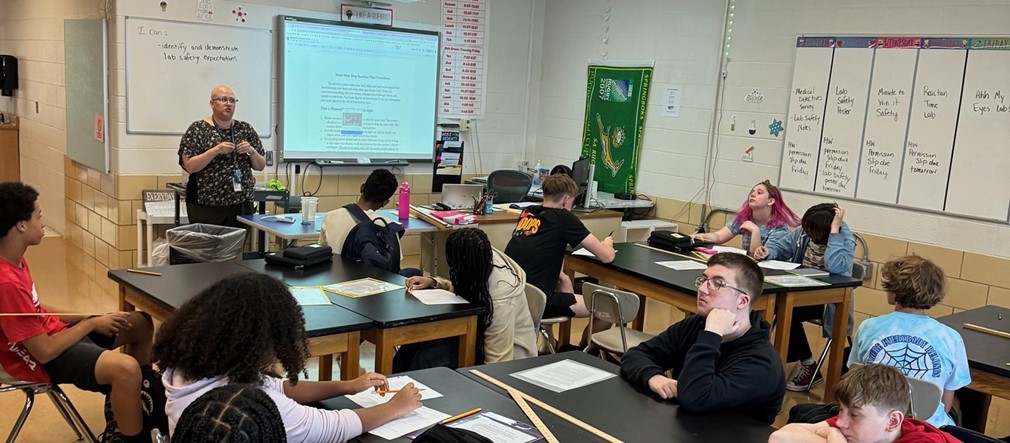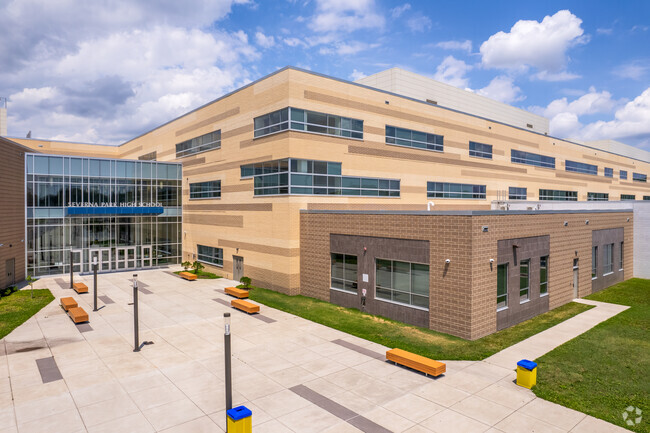Discover the Conveniences of Advocacy: Save Temecula Schools
Discover the Conveniences of Advocacy: Save Temecula Schools
Blog Article
Comprehending the Significance of Institutions in Child Growth and Community Development
Schools' engagement with local neighborhoods through service-learning efforts enhances the bond between families and academic organizations. This symbiotic connection underscores the value of institutions in nurturing active citizenship and long-lasting understanding behaviors.
Academic Accomplishment
Academic success acts as a foundation of kid advancement, providing the foundation upon which future understanding and success are built. Institutions play an essential function in cultivating this scholastic development, offering organized settings where kids can get crucial expertise and cognitive skills. Standard educational program guarantee that trainees gain effectiveness in core topics such as maths, science, and language arts, which are crucial for both college and expert possibilities.
In addition to presenting basic academic abilities, institutions additionally grow crucial thinking, analytic capacities, and intellectual interest. These cognitive expertises are important for browsing complicated real-world scenarios and adapting to the ever-evolving demands of the contemporary workplace. Educators, as facilitators of learning, utilize varied pedagogical approaches to accommodate different discovering designs, thus making the most of individual trainee possibility.
In addition, academic success is carefully linked to self-confidence and inspiration. Children that experience scholastic achievements are more probable to create a favorable self-concept and a long-lasting passion for discovering. Colleges additionally use different resources, such as collections and modern technology, which even more improve the instructional experience and prepare trainees for a technically sophisticated culture.
Social Skill Growth
Beyond academic achievement, the role of institutions in social ability growth is crucial. Schools function as a primary venue for children to learn and exercise important social abilities such as teamwork, problem, and communication resolution. In the structured atmosphere of a classroom, students interact with peers, educators, and other institution staff, offering various chances to create these critical capacities.
Efficient social ability advancement in institutions is promoted with team activities, collective projects, and extracurricular programs. These interactions help pupils comprehend social standards, develop compassion, and promote a feeling of area. As an example, group assignments teach students just how to collaborate in the direction of an usual goal, pay attention to different perspectives, and navigate disputes constructively.

The farming of social abilities during school years lays a foundation for future personal and professional relationships. Save Temecula Schools. As trainees mature, the capability to effectively connect and collaborate becomes increasingly important, underscoring the college's important duty in alternative kid advancement
Direct Exposure to Diversity
Exposure to diversity in colleges is basic to promoting an inclusive state of mind and widening pupils' viewpoints. Schools act as a microcosm of the broader culture, and running into diverse societies, languages, and socioeconomic backgrounds within this atmosphere equips students with vital abilities for browsing click this site a significantly globalized globe. This direct exposure encourages empathy, lowers prejudices, and promotes mutual regard among peers.
Varied classrooms also boost cognitive and social advancement. Research study indicates that pupils that interact with peers from diverse histories exhibit much better problem-solving skills and imagination. They learn to appreciate various point of views, which improves class conversations and promotes an extra vibrant knowing experience. In addition, this understanding of diversity prepares trainees for future offices that worth modern skills.

Neighborhood Interaction
The advantages of varied classrooms extend beyond the institution wall surfaces, cultivating a strong sense of neighborhood engagement amongst pupils. By engaging with peers from numerous social, socioeconomic, and ethnic histories, pupils obtain a wider point of view and an admiration for variety. This exposure encourages them to come to be energetic residents that want to contribute favorably to their communities.
Schools that stress area engagement commonly include service-learning jobs, which enable students to resolve real-world problems while using academic abilities. These tasks not just boost trainees' understanding of their coursework however likewise impart a feeling of obligation and empathy. Collaborations between schools and local companies supply students with chances to participate in community occasions, even more solidifying their function as proactive community participants - Save Temecula Schools.
Furthermore, adult and area involvement in schools reinforces the bond between universities and the areas they offer. When institutions open their doors to area occasions, workshops, and volunteer opportunities, they create a collaborative setting that benefits all stakeholders. go to website This mutual support group makes certain that students get all natural advancement, preparing them to become all-around people who add and value to their neighborhoods. Through these efforts, institutions play a pivotal duty in nurturing area engagement and promoting societal growth.
Lifelong Learning Routines
Developing long-lasting knowing behaviors is crucial for a child's continuous development and flexibility in an ever-changing world. Institutions play an essential duty in instilling these behaviors by producing an environment that promotes interest, critical thinking, and a love for understanding. With varied curricula and extracurricular tasks, educators motivate trainees to explore various topics, evaluate details critically, and use their learning to real-world scenarios.

In addition, colleges supply a structured atmosphere where kids can develop self-control and time administration abilities, both of which are crucial for continuous knowing. By highlighting the relevance of setting goals, assessing progress, and adjusting techniques, schools prepare trainees to browse the intricacies of grown-up life, guaranteeing they remain lifelong learners and factors to society.
Conclusion
In conclusion, colleges are important in fostering youngster advancement and community growth by offering atmospheres conducive to scholastic go to this website accomplishment, social skill growth, and exposure to diversity. Eventually, schools grow lifelong understanding routines, furnishing individuals with the essential understanding and abilities to contribute favorably to culture.
In the organized environment of a class, pupils engage with peers, instructors, and various other school personnel, offering numerous opportunities to establish these vital capacities.
In essence, exposure to variety within colleges not only improves individual trainees yet also enhances the social material of the area as a whole.
The advantages of diverse class expand beyond the school walls, cultivating a solid feeling of neighborhood involvement amongst students.Schools that highlight community engagement frequently integrate service-learning tasks, which permit students to address real-world problems while applying academic abilities. Collaborations in between schools and local organizations give trainees with opportunities to take part in area occasions, further strengthening their duty as aggressive neighborhood members.
Report this page